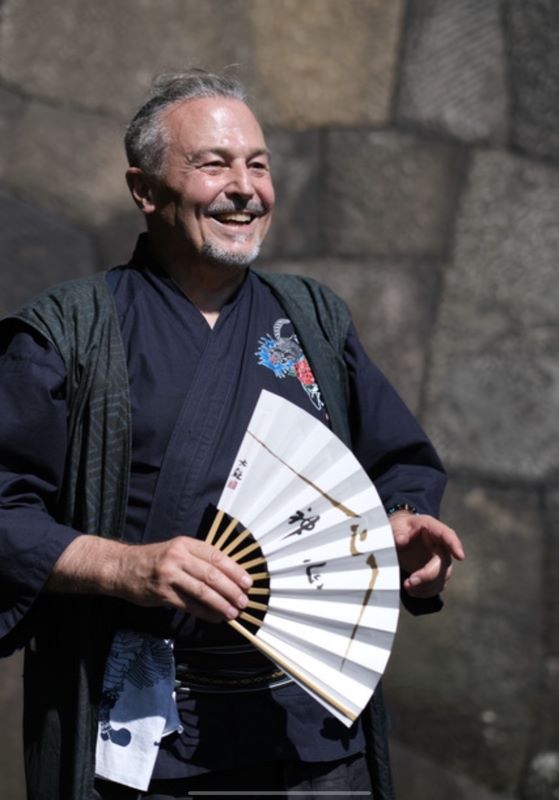To begin on a personal note: As a young man growing up in London in the 1960s, I was instructed by teachers who had lived through World War II. Military techniques were still being used in high-school sports training. I remember the often-used phrase “Chest out, stomach in!” to accompany the sharp inbreath when we were ordered to stand to attention like soldiers.
For me this was the normal way to breathe. Many years later, I realised that this forced, high-tension way of breathing was actually a method for muting fear and emotions for soldiers going into battle.
Around the age of 30 I went into a long, intense period of studying meditation. During this process I naturally developed a slower, more natural way of breathing. Eventually my breathing technique had become the exact opposite of what I had experienced at school, with the stomach gently expanding on the inbreath. This was life-changing, has remained with me permanently, and heralded a deep transformation in my creative work in music and art.
So it comes as no surprise to me to read in this remarkable book how profound the effect Missoku Breathing has always had on the entire culture and lifestyle of Japan. I have never read a clearer and more detailed explanation of what it is that makes the Japanese people so uniquely refined and sensitive.
Missoku seems to be the uniting force that underlies all aspects of Japanese life – posture, speech, art, music, architecture, fashion, etiquette, social behaviour, etc. For us non-Japanese, after reading this meticulously-written volume, this country no longer has to remain an enigma, an inscrutable, mysterious nation. Akikazu Nakamura has lifted the veil and shown us the profound yet simple logic behind what makes Japan truly Japanese.
Morgan Fisher, musician and photographer, Mott the Hoople





